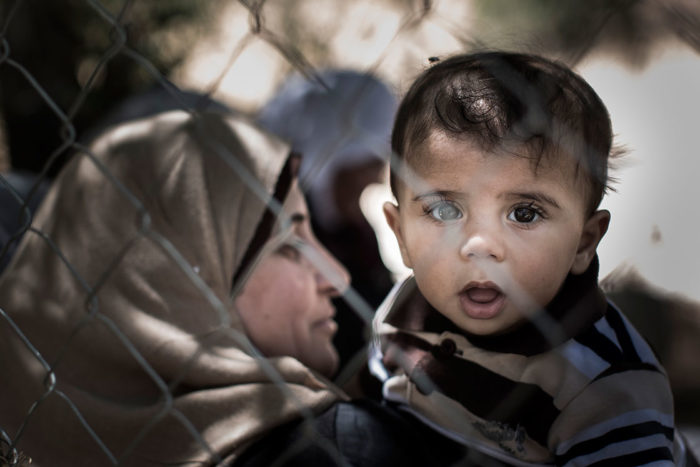Open letter to Swedish parlamentarians about annexation of Palestinian areas
Date
June 22, 2020
Raeda and Anas Alhelo. Photo by Marcus Lundstedt
“As Swedish aid and human rights organisations, we are deeply concerned about the newly formed Israeli government’s plans to annex parts of the West Bank. Regardless this is done formally or through measures that in practice change the status of the civilian population or occupied areas. The new government coalition’s platform states that it plans to make such a decision on July 1, 2020.
Unilaterally expanding its own territory is a violation of international law and both Sweden and the EU have always been reluctant to distance themselves from such action.
An annexation in itself constitutes a violation of international law, where Sweden undertakes to work under all conditions to ensure that it is respected. An annexation that is carried out without sanctions from the outside world creates a risky precedent for other actors who can perceive opportunities to annex territory without consequences.
Similar security policy risks are pointed out from Sweden, Estonia, Latvia, Lithuania, Denmark and Finland in a joint statement 2016 on the importance of continued vigilance following Russia’s annexation of Crimea “… we must constantly, and in no uncertain terms, restate our unwavering commitment to the key principles of international law and European security. Letting Russia’s actions pass unchecked would be a recipe for more instability and less regard for international law as future aggressors would no longer be deterred by the cost of such behavior. Therefore, the EU non-recognition policy and the sanctions must be kept under constant review, to remove loopholes and to make sure that they are effective…. ”
With regard to the annexation of Crimea, the EU has made clear decisions to ban investments and trade that support Russian economic activities in annexed territory, as well as sanctions against individuals in responsible positions. According to this practice, it would be politically inappropriate to treat Israel preferentially on the issue of annexation.
/ … /
Both Israel and the Palestinian Authority have partnerships and favourable trade agreements with the EU. However, these are conditional upon demands for respect for international law, but at present there is a violation of this from both Israel and the Palestinian Authority without any concrete consequences for the agreements.
Several reports indicate that all parties to the conflict (Hamas, the Palestinian Authority and Israel) in various ways make human rights work more difficult through laws, regulations, threats, and harassment. This applies not least to the human rights organisations and human rights defenders who monitor and report violations of both national and international law. These are votes that, just as in other conflicts, must be allowed to operate without harassment and threats from the parties to the conflict.
That the Israeli government would decide on the future of the Palestinians without being able to influence themselves would be deeply undemocratic and contrary to the rule of law, and would also end up destroying all possibilities for the two-state solution for which both Sweden and the EU work.
/ … /
We therefore want to urge Swedish parliamentary parties to:
- Ensure that Sweden and the EU, through available diplomatic tools, prevent Israel from annexing occupied Palestinian territory.
- Work to strengthen, at both Swedish and EU level, the implementation of the EU guidelines on differentiation between the recognized State of Israel and the illegal settlements on occupied land.
- Require that Israel and the Palestinian Authority (PA) comply with the requirements of respect for international law contained in the EU’s various trade and cooperation agreements with Israel and PA, and that violations of these conditions must have consequences
- Support and protect the rights of human rights defenders and human rights organisations to operate in both Israel and Palestine.
Promote a negotiated, fair and sustainable peace that guarantees the right of both Israelis and Palestinians to self-determination, and the right to live in peace and security within internationally recognized borders. “